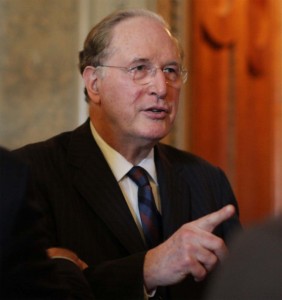Driven by the ongoing safety scandal at Toyota, Congress appears intent on pushing through new auto safety rules, this year, and a proposal introduced into the Senate would both improve funding for the National Highway Traffic Safety Administration, and give the agency more teeth to enforce its will.
Similar to a measure already introduced into the House of Representatives, the proposal is causing some concern among industry leaders – which they’re expected to underline during a hearing by the House Energy and Commerce Committee, on Thursday.
The flurry of activity on Capitol Hill follows the recall of roughly 6 million vehicles by Toyota and that automaker’s decision to pay a $16.4 million fine for failing to notify NHTSA of problems with sticky accelerators in a timely manner. Though a record fine, that figure was still limited by current rules that might be lifted by Congress. A similar infraction, in the future, might generate penalties pushing into the billions.
The Motor Vehicle Safety Act of 2010, sponsored by eight members of the Senate, would grant sweeping new authority to NHTSA to order a recall where the agency perceived an “imminent danger.”
The lead sponsor, Senator Jay Rockefeller, a West Virginia Democrat, has said his proposal aims to instill “accountability.” That would be directed at both the industry and federal safety regulators, the latter group being criticized, in recent months, for playing too cozy with automakers. Documents leaked by Congress, earlier this year, showed Toyota celebrating when it was able to convince NHTSA to sharply scale back a proposed recall meant to address sudden acceleration problems.
Among other things, the Senate’s proposal would take steps to regulate push-button starters, require brake override systems – which would allow a motorist to stop a vehicle even if its throttle stuck – and mandate the use of electronic data recorders, so-called black boxes. Not only would potential penalties against automakers be increased but individual executives could face severe fines for making improper statements related to safety problems.
That last clause could generate some of the biggest criticism from industry leaders during Thursday’s hearing. The makers are expected to ask for more time to meet the bill’s demands.
One big difference between the new Senate proposal and a key measure under study in the House concerns NHTSA funding. The Senate bill would double the safety agency’s budget, but it would not mandate the $9 per vehicle fee that the House proposal wants to levy on U.S. new car buyers.

